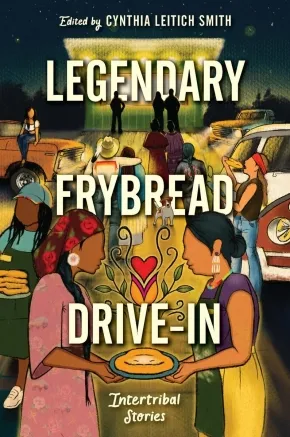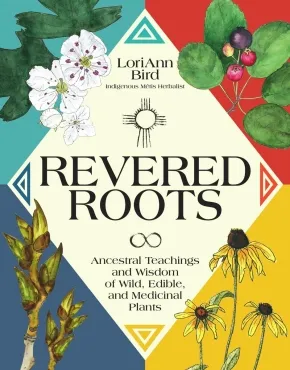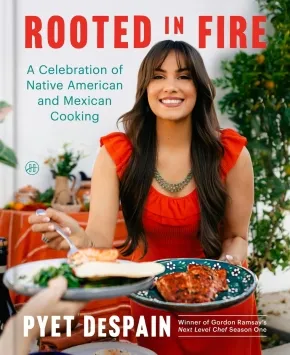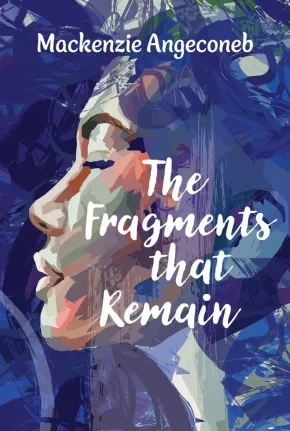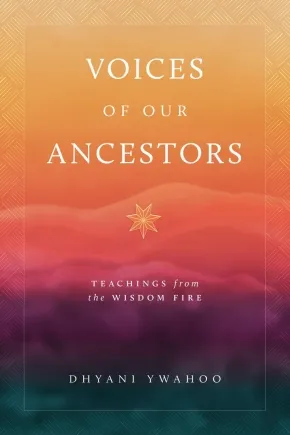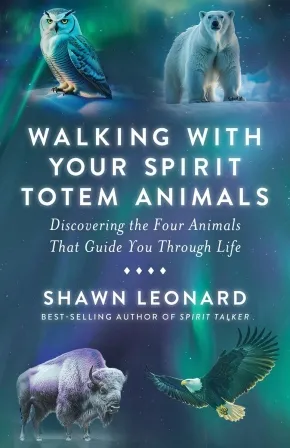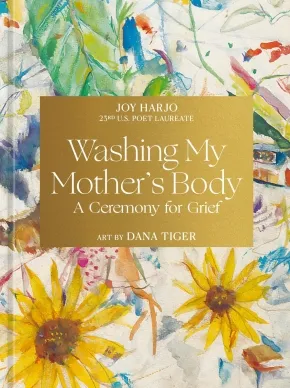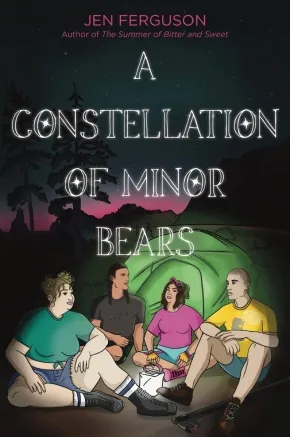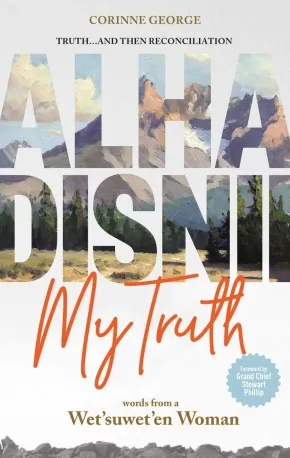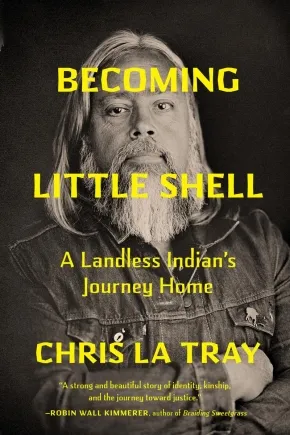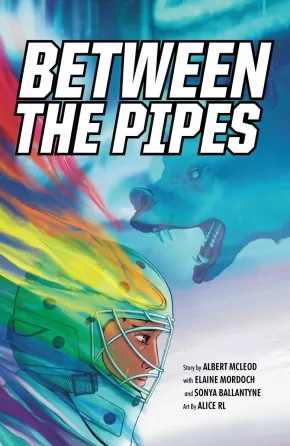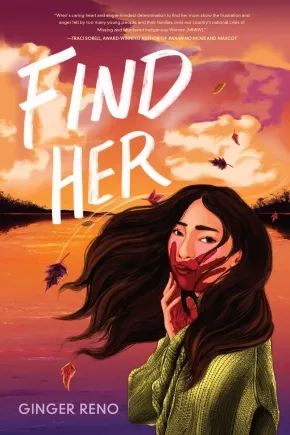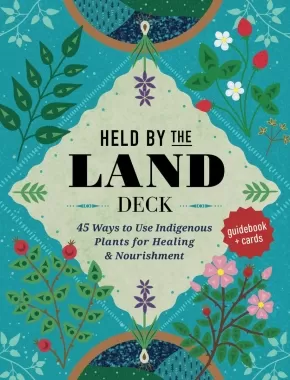
Healing and Wellness
16
-
30
of
222 Results;
Sort By
Go To
of 15
Legendary Frybread Drive-In: Intertribal Stories
$24.99
Editors:
Format:
Hardcover
Text Content Territories:
Indigenous American; Indigenous Canadian;
ISBN / Barcode: 9780063314269
Synopsis:
Synopsis:
Featuring the voices of both new and acclaimed Indigenous writers and edited by bestselling Muscogee author Cynthia Leitich Smith, this collection of interconnected stories serves up laughter, love, Native pride, and the world’s best frybread.
The road to Sandy June's Legendary Frybread Drive-In slips through every rez and alongside every urban Native hangout. The menu offers a rotating feast, including traditional eats and tasty snacks. But Sandy June's serves up more than food: it hosts live music, movie nights, unexpected family reunions, love long lost, and love found again.
That big green-and-gold neon sign beckons to teens of every tribal Nation, often when they need it most.
Featuring stories and poems by: Kaua Mahoe Adams, Marcella Bell, Angeline Boulley, K. A. Cobell, A. J. Eversole, Jen Ferguson, Eric Gansworth, Byron Graves, Kate Hart, Christine Hartman Derr, Karina Iceberg, Cheryl Isaacs, Darcie Little Badger, David A. Robertson, Andrea L. Rogers, Cynthia Leitich Smith, and Brian Young.
Reviews
"There's a lot of warmth and gratitude to revel in...Various characters thread through each other’s stories, allowing many of the players more depth and nuance had they only been in one tale, and encouraging the readers to make the thematic connections in cultural identities that are both individually specific and community-wide." — Bulletin of the Center for Children’s Books
"17 Indigenous writers create a web of entertaining, intertwined stories in this uplifting and unusual anthology, ideal for the YA reader who longs for connection and authenticity. Themes of displacement and loneliness, as well as the importance of connection to family, friends, and tribe, permeate the entries, making the collection relevant and accessible for teen readers of any background. As Cheryl Isaacs says in "Heart Berry," "One way or another, Sandy June's never fail[s]." — Shelf Awareness
"The literary conceit that unifies these stories is a magical “NDN Country” frybread drive-in that serves up Native comfort food and wisdom, a “collective dream” where young people in need of connection or healing find themselves among an intertribal community of all ages...many stories mention historical events and all of them touch on family heritage, they also feel quite of-the-moment." — Horn Book Magazine
Educator Information
Recommended for ages 13+.
This collection of interconnected stories features voices of new and acclaimed Indigenous writers.
Additional Information
352 pages | 5.50" x 8.25" | Hardcover
Revered Roots: Ancestral Teachings and Wisdom of Wild, Edible, and Medicinal Plants
$32.99
Format:
Hardcover
Text Content Territories:
Indigenous Canadian; Métis;
Reading Level: N/A
ISBN / Barcode: 9780760393253
Synopsis:
“Revered Roots is a profound journey that gracefully and colorfully intertwines Indigenous wisdom with practical plant knowledge, offering a guide to reconnect with Nature’s green gifts. LoriAnn's heartfelt teachings inspire readers to honor and deepen their sacred relationship with the Earth.”—Dr. Kelly Ablard, Founder and CEO, Airmid Institute
Synopsis:
With Indigenous Métis herbalist LoriAnn Bird as your guide, connect with the ancestral wisdom of over 90 wild edible and medicinal plants from across North America.
A purposeful and powerful reference to the lessons, nourishment, healing, and history of our “plant teachers,” Revered Roots shares guidance on exploring, gathering, and reclaiming these long-revered plants as food and medicine. Separated into two sections, LoriAnn first reveals her own journey to understanding and respecting our plant elders. She offers teachings and lessons about remembering our relationship to the plants around us and our responsibility to the earth that sustains us.
The second part of the book is filled with insightful illustrated plant profiles detailing the identification, uses, and Indigenous folklore of some of the continent’s most treasured ancestral plants. Included are edible and medicinal bark, berries, and buds from trees and shrubs, as well as foliage, flowers, and fronds from herbs, “weeds,” and wildflowers; some native to the continent, others introduced generations ago.
Learn about the gifts our Rooted Nation of plants has to offer, including:
- Evergreen tips from spruces, pines, and firs
- Hawthorn berries, leaves, and flowers
- Plantain seeds and foliage
- Oswego tea leaves and blooms
- Slippery elm bark
- Motherwort flowers, stems, and leaves
- Black cohosh roots and rhizomes
- Marshmallow root
- Cottonwood buds and bark
- Plus dozens more
Reclaiming our natural rhythms and connections to the earth we walk on is essential to our health and well-being, both as individuals and as a community. One simple way to do that is by appreciating, respecting, and seeking to understand the plants around us.
Reviews
“With elegant reverence, LoriAnn Bird weaves connections among ancestral herbalist teachings from several lineages. She invites us into our own personal journey with plant medicine, giving us lessons on how to respect and honor the power of plants and their human knowledge keepers. She carefully and lovingly attributes each piece of teaching to its source. This book is a powerful legacy that we need more than ever at this time of healing and reconciliation. May its words fly into the world and land softly in the hearts of all who need them.”—Lori Weidenhammer, author of Victory Gardens for Bees: A DIY Guide to Saving the Bees
“Revered Roots is truly an essential work of art that imparts the sacredness of each plant, in each harvesting step and in the interspecies relationships with all of life. The authentic and grounded nature of LoriAnn Bird comes through the pages to connect us with a sense of belonging and reverence.”—Katrina Blair, founder of Turtle Lake Refuge; author of The Wild Wisdom of Weeds
“LoriAnn Bird, in her book Revered Roots, creates a beautiful story about our plant relatives with our history woven between the leaves of each page. She highlights each being and allows them to tell their story, including who they are, their benefits, uses, ways to eat, look-alikes, and what makes them unique. It's like looking at an old family album and finally knowing who each person is and what their spirit has to offer the world. The book, complete with information about our relatives, wrapped its warm arms around me as I nestled in to read each page, excited to learn more about family. LoriAnn’s voice provides a continuous honoring of our ancestors, our brilliance, and our resilience.”—Jenna Jasek, Shuswap (Kenpesq't) Band member, Director of Indigenous Learning, The Outdoor Learning School
“Revered Roots is a profound journey that gracefully and colorfully intertwines Indigenous wisdom with practical plant knowledge, offering a guide to reconnect with Nature’s green gifts. LoriAnn's heartfelt teachings inspire readers to honor and deepen their sacred relationship with the Earth.”—Dr. Kelly Ablard, Founder and CEO, Airmid Institute
“LoriAnn Bird weaves stories of plants into a tapestry of vivid imagery and teachings, allowing us to experience earth medicine in a way we never have before. Like a family gathered around the table exchanging stories of cherished ones, Lori Ann’s plant musings draw us into an intimate connection with our More-Than-Human Kin. From a small moment in a back alley in East Vancouver to hundreds of years of history from around the world, Revered Roots feels like an equal blend of encyclopedia, history book, and love letter. Get to know plants in a truly profound way through the words of a master storyteller, sister, friend, mother, and plant protector.”—Stephanie Rose, founder of Garden Therapy; author of Garden Alchemy and The Regenerative Garden
“This is a beautiful book on every level; the gorgeous drawings and painting of plants, the photography and images throughout, but also the words and the feelings on each page. Intensely moving and remarkably practical, deeply personal and filled with worldly wisdom, this book offers the reader a glimpse into a whole new way of seeing the nature. With a plant centered focus, through a biophilia lens, the author invites us to re-evaluate and re-vision our own relationships with plants and the natural world. This book is destined to be a classic.”—Chanchal Cabrera MSc, FNIMH, Medical Herbalist; Horticulture Therapist; author of Holistic Cancer Care
“LoriAnn has put a lifetime of collected knowledge into a work that connects people to plants in ways both honorable and honest. Revered Roots extols both the practical and sacred uses of the plants we see around us, while also nurturing our respect for our More-Than-Human Kin and our responsibility to the greater world. It has been a pleasure to be a teacher and herbal mentor to LoriAnn for many years.”—Don Ollsin, Master Herbalist; Conscious Spiritual Elder, Alchemy of Aging; author of Pathways to Healing
Additional Information
240 pages | 8.00" x 9.55" | Hardcover
Rooted in Fire: A Celebration of Native American and Mexican Cooking
$43.50
Format:
Hardcover
Reading Level: N/A
ISBN / Barcode: 9780063304079
Synopsis:
Synopsis:
Next Level Chef winner Pyet De Spain celebrates her Mexican and Native American heritage in this collection of mouthwatering recipes, a vibrant fusion that ties us to the land and to one another.
Star chef Pyet DeSpain rose to prominence as the first winner of Gordon Ramsey’s Fox television show Next Level Chef. Now, in her debut cookbook, she shares the joy of cooking fueled by her burning passion for Native American and Mexican American cuisine. Rooted in Fire: A Celebration of Native American and Mexican Cooking is a tribute to her dual heritage—a gorgeously crafted celebration of the diversity of food and the stories, traditions, culture, and profound philosophies of Indigenous people that season each meal.
Pyet shows you how to incorporate a delicious range of key ingredients—from venison, dandelion greens, to sunchokes, bison, and native berries—into more than sixty fusion dishes. Family and friends will be excited to gather around the table to enjoy sweet and savory food such as:
- Three Sisters Salad
- Bison and Sweet Corn Soup
- Fry Bread
- Mexican Chocolate & Mezcal Cake
- Corn Silk and Honey Tea
- Wojapi BBQ Sauce
In addition to her inventive and palate pleasing recipes, Pyet invites home cooks to honor the seasons on our beautiful Earth and connect with essential foodways. “This is more than just a cookbook,” Pyet writes. “It’s giving a voice to Indigenous people, while also highlighting the fusion of my two cultures with fire and purpose.”
Reviews
"Pyet's talent is evident in every recipe in this book. The way she weaves her heritage into her dishes is extraordinary and I've seen it every day since the first time I tasted her work on Next Level Chef. Trust me, you're in for an absolute treat." — Gordon Ramsay
Pyet’s Rooted in Fire beautifully honors her Prairie Band of Potawatomi and Mexican heritage through food storytelling that is both personal and powerful. Her voice is heartfelt, her vision and dedication are clear, and her talent within the Indigenous food movement is undeniable. I’m so proud to see her shining as a modern-day Indigenous food warrior—this book marks an important chapter in her growing legacy." — Sean Sherman, Founder of The Sioux Chef/NATIFS.org and Author of The Sioux Chef’s Indigenous Kitchen and Turtle Island
Additional Information
288 pages | 7.38" x 9.12" | 128 four color food photographs | Hardcover
The Fragments that Remain
$16.95
Format:
Paperback
Text Content Territories:
Indigenous Canadian; First Nations;
ISBN / Barcode: 9781770867796
Synopsis:
Synopsis:
Dearest Departed, I do not know when I decided I was going to write. I am not a writer. You are. You were.
Honorary twins Ally and Andy, born at the start and end of the same year, have always shared everything — until Ally dies, his passing ruled a suicide by overdose. A year later, Andy starts her first year at college without her other half, writing letters to Ally as she makes new friends who know nothing about him, falls in love for the first time, and strives to embrace her bisexuality and her Indigenous identity. When Andy discovers the poems Ally hid in their room, she pieces together these remaining fragments to make sense of her brother’s life — and his death.
A story told through letters and poems, The Fragments that Remain is a heart-wrenching and hopeful debut novel from Mackenzie Angeconeb.
Reviews
“[A] powerful exploration of identity and trauma. … An affirming account of an Indigenous teen’s experience with multiple forms of loss.” — Kirkus Reviews
“[The] Fragments that Remain takes the reader on a candid journey of brokenness and awakenings. Through layers of grief, the narrator navigates the path toward hope and healing with beautifully authentic thoughts, feelings and experiences. This novel, the first from Mackenzie Angeconeb, is a triumph.” — Valerie Sherrard, award-winning author of The Glory Wind and Standing on Neptune
Educator Information
Recommended for ages 13+.
Additional Information
270 pages | 5.37" x 8.00" | Paperback
Voices of Our Ancestors: Teachings from the Wisdom Fire
$33.95
Format:
Paperback
Text Content Territories:
Indigenous American; Native American; Cherokee; Eastern Band of Cherokee;
Reading Level: N/A
ISBN / Barcode: 9781645473046
Synopsis:
Synopsis:
Follow the beauty way to generate happiness and good relationships, fulfill your life purpose, manifest peace and abundance, and renew the planet.
Dhyani Ywahoo’s powerful, prophetic, and compassionate voice returns in this new expanded edition of the book that’s sold over 90K copies.
This beloved book has resonated with thousands of spiritual explorers and other readers wishing to ground their activities in harmony and well-being. In this expanded edition, Dhyani Ywahoo continues to be a guiding source of wisdom for all who walk the Beauty Way. As the twenty-seventh generation to carry the Ywahoo lineage of the Eastern Tsalagi/Cherokee Nation, she shares the precious oral teachings of her people that remain timely, powerful, and accessible.
Weaving together Buddhist and Native American traditions, Voices of Our Ancestors offers practical ways of transforming obstacles into happiness and good relationships, fulfilling our life purpose, manifesting peace and abundance, and renewing the planet. The Tsalagi worldview teaches us to infuse each moment with the three fundamental principles of intention, compassion, and doing good. We have the opportunity to let go of fear and aggression and begin to live a life of enlightened consciousness, with tools like:
- Meditations;
- Healing rituals;
- Instructions for working with crystals; and
- Teachings on how to practice generosity and harmony.
Our journey is enriched by Dhyani Ywahoo’s new reflections on the expansion of Native American communities in the United States and how they have cooperated to bring Indigenous voices into larger conversations about conflict resolution, the climate crisis, and the need for inclusion of underrepresented groups and individuals. With a voice that is powerful, prophetic, and compassionate, Dhyani Ywahoo calls on us to become peacekeepers in our hearts and in the world.
Reviews
“Venerable Dhyani Ywahoo embodies wisdom of the Native and Tibetan traditions. Hers is a lifetime spent generously sharing these sacred teachings with students all over the world. I celebrate this new edition of her book, which will hold these precious methods to walk in this world with wisdom and compassion now and for future generations.”—Lama Konchok Sonam, spiritual director of Drikung Meditation Center
“These wisdom teachings are profoundly life-changing for spiritual growth no matter your tradition. Venerable Dhyani Ywahoo is an exceptional spiritual leader and teacher, having forged her own way through traditional Cherokee and Vajrayana teachings. She compassionately embraces her students with her wisdom, offering unique and significant insights. Voices of Our Ancestors is a timeless work and as such it lends support and inspiration continually.”—Shan Watters, artist and author of Mothering the Divine
Additional Information
352 pages | 6.00" x 8.99" | Paperback
Walking with Your Spirit Totem Animals: Discovering the Four Animals That Guide You Through Life
$23.99
Format:
Paperback
Text Content Territories:
Indigenous Canadian; First Nations; Mi'kmaq (Mi'gmaq);
Reading Level: N/A
ISBN / Barcode: 9781401997250
Synopsis:
Synopsis:
From Shawn Leonard, Indigenous medium and host of Spirit Talker, comes a guide for assembling your unique team of spirit totem animal guides to be your personal guides through your life.
We are deeply connected to the animal nation, and through the four stages of life—Childhood, Youth, Adulthood, and Elderhood—there are four sacred animal totems that guide us energetically using their sacred medicine.
In Walking With Your Spirit Totem Animals, Mi’kmaq medium and host of Spirit Talker Shawn Leonard invites readers on a profound journey into the mystical world of animal totems. His insightful guide reveals how specific animal totems, that are personal to each and every one of us, support us. Leonard intertwines personal anecdotes with spiritual teachings, illustrating how these animal guides have appeared in his own life—his totems are Buffalo/Bison, Eagle, Polar Bear, and Owl—and provided wisdom at each stage.
The book includes comprehensive discussions on the Medicine Wheel and practical tools such as prayers and meditations to help readers connect with their own animal totems. Leonard also incorporates reflections on the connection between pets and their spiritual roles, messages revealed through animal dreams, and encounters with the animal nation in the astral realm.
Additional Information
208 Pages | 5.63 x 8.50" | b&w interior | Paperback
Washing My Mother's Body: A Ceremony for Grief
$24.95
Artists:
Format:
Hardcover
Text Content Territories:
Indigenous American; Native American; Muscogee (Creek);
Reading Level: N/A
ISBN / Barcode: 9781984861368
Synopsis:
Synopsis:
A beautifully illustrated edition of Poet Laureate Joy Harjo’s poem “Washing My Mother’s Body,” which offers a way through grief when the loss appears unbearable.
As I wash my mother’s face, I tell her
how beautiful she is, how brave, how her beauty and bravery
live on in her grandchildren. Her face is relaxed, peaceful.
Her earth memory body has not left yet,
but when I see her the next day, embalmed and in the casket
in the funeral home, it will be gone.
Where does it go?
Through lyrical prose and evocative watercolor illustrations by award-winning Muscogee artist Dana Tiger, Washing My Mother’s Body explores the complexity of a daughter’s grief as she reflects on the joys and sorrows of her mother’s life. She lays her mother to rest in the landscape of her memory, honoring the hands that raised her, the body that protected her, and the legs that carried her mother through adversity.
Moving, comforting, and deeply emotional, Washing My Mother’s Body is a tender look at mother-daughter relationships, the complexity of grieving the loss of a parent, and the enduring love of those left behind.
Additional Information
80 pages | 5.79" x 7.81" | Hardcover
A Constellation of Minor Bears
$24.99
Format:
Hardcover
Text Content Territories:
Indigenous Canadian; Métis;
ISBN / Barcode: 9780063334229
Synopsis:
Synopsis:
Award-winning author Jen Ferguson has written a powerful story about teens grappling with balancing resentment with enduring friendship—and how to move forward with a life that’s not what they’d imagined.
Before that awful Saturday, Molly used to be inseparable from her brother, Hank, and his best friend, Tray. The indoor climbing accident that left Hank with a traumatic brain injury filled Molly with anger.
While she knows the accident wasn’t Tray’s fault, she will never forgive him for being there and failing to stop the damage. But she can’t forgive herself for not being there either.
Determined to go on the trio’s postgraduation hike of the Pacific Crest Trail, even without Hank, Molly packs her bag. But when her parents put Tray in charge of looking out for her, she is stuck backpacking with the person who incites her easy anger.
Despite all her planning, the trail she’ll walk has a few more twists and turns ahead. . . .
Reviews
"With a rhythm and tone that reads like poetry, Ferguson delivers an emotionally resonant tale in which profound interpersonal conflict unfolds against the lushly described natural backdrop of an adrenaline-inducing outdoor environment." — Publishers Weekly
"Explores disability and fat activism and fatphobia, with a side of romance." — Kirkus Reviews
"No matter who reads this book, they will find something in each character that will ring true. A must-buy for YA collections." — School Library Journal
"Conversations around love and intersectional analysis of Indigeneity, fatness, disability, queerness, blended families, and human interactions with nature are sure to pique the interest of readers also exploring the many facets of what makes them whole." — Bulletin of the Center for Children’s Books
"A great read for all teenagers, and especially those who've graduated and are wondering what comes next." — Booklist
Educator Information
Recommended for ages 13+.
This novel grapples with resentment, fear, grief, anti-Indigenous racism, and moving forward in a life you're not sure fits you. These difficult emotions and issues are handled thoughtfully and with empathy.
Additional Information
352 pages | 5.50" x 8.25" | Hardcover
Alha Disnii - My Truth: Words from a Wet'suwet'en Woman
$19.99
Format:
Paperback
Text Content Territories:
Indigenous Canadian; First Nations; Dene; Dakelh (Carrier); Wet’suwet’en; Gitxsan (Gitksan);
ISBN / Barcode: 9781778540417
Synopsis:
Synopsis:
My name is Corinne George. I am Wet’suwet’en with Gitksan lineage from the Gidimt’en (Bear) Clan. This is my truth, and through sharing my truth, I strive for ongoing healing and to continue the journey of reconciliation. As a Wet’suwet’en woman born and raised on what is now known as the “Highway of Tears,” it was not uncommon to receive inferior treatment. There were even times when I was overtly targeted. It has been very common for people to outwardly refuse to acknowledge my existence as a human being. I was always afraid to share my truth because I did not want to be stigmatized. I am the daughter of a residential school survivor and a WWII veteran. As a result of colonization, I have encountered incredible levels of trauma. I need to acknowledge and speak my truth. As I share my pain and experiences, I have gathered self-awareness and every time I speak about my trauma, I heal a little bit more. I do not deserve to be treated like I do not exist. Despite the historical impacts of colonization and trauma, my connections to my ancestral ways and my identity have been critical. This is how I survived and how I strive to thrive.
Educator Information
Recommended for ages 16+.
Additional Information
128 pages | 5.10" x 7.50" | Paperback
Becoming a Matriarch (PB)
$23.00
Format:
Paperback
Text Content Territories:
Indigenous Canadian; First Nations; Dene; Dane-zaa (Dunne-za);
Reading Level: N/A
ISBN / Barcode: 9780385697798
Synopsis:
Synopsis:
When matriarchs begin to disappear, there is a choice to either step into the places they left behind, or to craft a new space.
Helen Knott’s bestselling debut memoir, In My Own Moccasins, wowed reviewers, award juries, and readers alike with its profoundly honest and moving account of addiction, intergenerational trauma, resilience, and survival. Now, with her highly anticipated second book, Knott exceeds the highest of expectations with a chronicle of grief, love, and legacy. Having lost both her mom and grandmother in just over six months, forced to navigate the fine lines between matriarchy, martyrdom, and codependency, Knott realizes she must let go, not just of them, but of who she thought she was.
Woven into the pages are themes of mourning, sobriety through loss, and generational dreaming. Becoming a Matriarch is charted with poetic insights, sass, humour, and heart, taking the reader over the rivers and mountains of Dane Zaa territory in Northeastern British Columbia, along the cobbled streets of Antigua, Guatemala, and straight to the heart of what matriarchy truly means. This is a journey through pain, on the way to becoming.
Through writing, reflecting, and dreaming I found my way to the real lessons.
I found permission to become whoever I needed to be.
I found permission to live a life and not just endure it.
I found permission to belong deeply to myself.
I found permission to lay to rest the sorrow of the women before me and to cultivate joy for us in its place.
Awards
- 2024 BC Book Awards - The George Ryga Award for Social Awareness in Literature winner
Reviews
“In enchantingly vivid language and with a compelling narrative arc, Helen Knott’s new masterpiece is a memoir of grief and joy, loss and rediscovery, flight and return and, above all, a paean to the beautiful, eternal, soothing and all-encompassing power of matriarchy.” —Gabor Maté MD, author of The Myth of Normal: Trauma, Illness and Healing in a Toxic Culture
“Knott lays out that which all Indigenous women know and feel on a cellular level—we are only here because of the women, the matriarchs, the warriors, the survivors, the courageous ones, the fierce ones, the loving ones who came before us. Beautifully, tenderly Knott maps out for the reader the intrinsic way Indigenous women lift up, celebrate and support one another. Even when no one else does. We always have each other. We see each other. We are each other’s medicine. And there is no greater gift. These are the stories Indigenous women must tell—the journeys, reclamation and place of matriarchs. Present in Knott’s words are paths to reconciliation for everyone.” —Nahanni Fontaine, Member of the Legislative Assembly of Manitoba
“Becoming a Matriarch is a vivid, lyrical exploration of womanhood, loss, grief, and eventually, self-love, braided together with radiance and wisdom. Knott brilliantly uses memory as a tool for self-exploration and growth. The land, dreams and body are in constant communication: ‘My body knows the mountains and rivers and berry bushes that it comes from.’ Throughout the book you can’t help but ask yourself, what does it mean to come from strong women and still allow yourself space to be loved? Becoming a Matriarch teaches us that joy can exist inside the cracks of the most tumultuous times in our lives and love can still bloom if we let it.” —Chelene Knight, author of Dear Current Occupant and Junie
“Becoming a Matriarch is a feast of remarkable, colourful, deep and profoundly raw storytelling. Helen Knott is one of the greatest Indigenous literary artists of our time.” —Brandi Morin, author of Our Voice of Fire: A Memoir of a Warrior Rising
Additional Information
224 pages | 5.18" x 8.00" | Paperback
Becoming Little Shell: A Landless Indian's Journey Home
$42.95
Format:
Hardcover
Text Content Territories:
Indigenous American; Native American; Anishinaabeg; Ojibwe (Chippewa); Little Shell Tribe of Chippewa Indians ;
Reading Level: N/A
ISBN / Barcode: 9781571313980
Synopsis:
Synopsis:
Growing up in Montana, Chris La Tray always identified as Indian. Despite the fact that his father fiercely denied any connection, he found Indigenous people alluring, often recalling his grandmother’s consistent mention of their Chippewa heritage.
When La Tray attended his grandfather’s funeral as a young man, he finally found himself surrounded by relatives who obviously were Indigenous. “Who were they?” he wondered, and “Why was I never allowed to know them?” Combining diligent research and compelling conversations with authors, activists, elders, and historians, La Tray embarks on a journey into his family’s past, discovering along the way a larger story of the complicated history of Indigenous communities—as well as the devastating effects of colonialism that continue to ripple through surviving generations. And as he comes to embrace his full identity, he eventually seeks enrollment with the Little Shell Tribe of Chippewa Indians, joining their 158-year-long struggle for federal recognition.
Both personal and historical, Becoming Little Shell is a testament to the power of storytelling, to family and legacy, and to finding home. Infused with candor, heart, wisdom, and an abiding love for a place and a people, Chris La Tray’s remarkable journey is both revelatory and redemptive.
Reviews
“La Tray’s pride and conviction will have readers eager not only to learn more, but to take action. A brilliant contribution to the canon of Native American literature.”—Kirkus Reviews, starred review
“[A] gripping debut memoir. [. . .] La Tray’s crystalline prose and palpable passion for spreading Indigenous history bolster his account. Readers will be fascinated.”—Publishers Weekly
"Heartbreaking, infuriating, and remarkable, Becoming Little Shell is a memoir that’s packed with historical details,transcending and amplifying a personal quest to understand a family’s past."—Foreword Reviews, starred review
“Smart, emotional, and bracingly honest, La Tray is a powerful storyteller who should have significant appeal.”—Booklist
“I’m in awe of Chris La Tray’s storytelling. Becoming Little Shell creates a multilayered narrative from threads of personal, family, community, tribal, and national histories. Together they make a story as strong and beautiful as a Metis sash—a story of identity, kinship, and the journey toward justice.”—Robin Wall Kimmerer, author of Braiding Sweetgrass
“Chris La Tray is a powerful voice—a force of nature, really—to guide us through the swirling confluence of Native and white worlds, both past and present. Becoming Little Shell is the American story of our era—tracing the arc of its author brought up in the white world before discovering his roots as an original inhabitant of this continent.”—Peter Stark, author of Gallop Toward the Sun
“Indigenous identity can be complicated, and Becoming Little Shell compels us into the thick of it—Native people dispossessed of not just land but recognition; blood quantum laws originally crafted to complete a genocide and still wreaking havoc in identity debates today; racism that drove many Native people to disassociate from their families; and descendants, like La Tray, who have found their way back, fighting for the reconnection of their communities and for the observance of their very existence. La Tray is a loving, discerning, curious, funny, and generous guide. This is a beautiful, big-hearted book.”—Sierra Crane Murdoch, author of Yellow Bird
“Becoming Little Shell is a moving, deeply felt, and incredibly detailed account of Chris La Tray’s search for his origins among the Métis, Pembina, and Little Shell Tribe of Chippewa Indians. Combining memoir, history, interviews, and travel, La Tray gives us nothing less than the history of a people in the form of an absorbing and emotionally searing memoir. This book will, without a doubt, become a classic in Native American literature. Must read.”—David Treuer, author of The Heartbeat of Wounded Knee
“What I appreciate so much about Chris La Tray’s writing on Indigenous identity and history is the wit, clarity, and integrity embodied in every word. Becoming Little Shell beautifully encompasses a journey that we can all learn from, a journey toward asking better questions about land, belonging, and connection, and through this book La Tray epitomizes historian, poet, and teacher. Full of Indigenous history, personal stories, and the complex dance between the two, La Tray reminds us that the journey of finding ourselves and making sense of the way colonialism plays out around us is an essential part of being human. Please read this book. You’ll be so glad you did.”—Kaitlin B. Curtice, author of Living Resistance
Additional Information
320 pages | 6.00" x 9.00" | Hardcover
Between the Pipes
$21.95
Artists:
Format:
Paperback
Text Content Territories:
Indigenous Canadian; First Nations; Cree (Nehiyawak);
ISBN / Barcode: 9781774921043
Synopsis:
Synopsis:
In this engrossing graphic novel, teen hockey player Chase learns more about himself and his identity in the face of prejudice and homophobia.
Thirteen-year-old Chase’s life and identity should be simple. He’s the goalie for his hockey team, the Eagles. He’s a friend to Kevin and Jade. He's Kookum's youngest grandchild. He’s a boy. He should like girls.
But it’s not that simple. Chase doesn’t like girls the way that the other boys do. It’s scary being so different from his peers. Scarier still is the feeling that his teammates can tell who he is—and that they hate him for it. If he pretends hard enough, maybe he can hide the truth.
Real strength and change can’t come from a place of shame. Chase’s dreams are troubled by visions of a bear spirit, and the more he tries to hide, the more everything falls apart. With the help of an Elder, and a Two-Spirit mentor, can Chase find the strength to be proud of who he is?
Between the Pipes explores toxic masculinity in hockey through the experiences of an Indigenous teen.
Reviews
“Highlights the importance of community and cultural connection as roots for embracing one’s identity.” — Kirkus Reviews
“The authors deftly confront multiple layers of intolerance exacerbated by toxic masculinity. Ojibwe artist RL uses saturated full color (with well-placed, empowering rainbows) to capture Chase’s self-empowering journey. The result is a compelling, hope-giving antidote against potential at-risk suicide among 2-Spirit/Indigenous LGBTQQIA+ youth.” — Booklist
“This hopeful...story offers valuable insight into Chase’s experience as a gay, Indigenous teen. Hockey and identity collide in this affirming graphic novel about recognizing and valuing one’s authentic self.” — School Library Journal
Educator Information
Recommended for ages 12 - 18.
Reading Level: Fountas & Pinnell Y
Additional Information
56 pages | 6.50" x 10.00" | Paperback
Find Her
$24.49
Format:
Hardcover
Text Content Territories:
Indigenous American; Native American; Cherokee;
ISBN / Barcode: 9780823454808
Synopsis:
Synopsis:
Five years, three months, and twelve days.
That’s how long Wren’s mother has been missing.
In dreams, Wren can see her again: her eyes, her hair, her smile. She can even hear her laugh. Her mother, one of hundreds of Native Americans considered missing or murdered in Oklahoma. Sometimes it seems like Wren and her grandmother are the only people still looking. Even more frustrating, Wren's overprotective father won't talk about it.
Wren refuses to give up, though. And an opportunity to find lost pets seems like a real way to hone her detective skills. But everything changes when one of the missing pets is found badly hurt. Soon, there are others.
With help from an unlikely friend, Wren vows to unmask whoever is behind the animal abuse. If she can do this, maybe she can do the same for her mother's case. She'll just have to keep it secret from her father who will certainly put an end to all her sleuthing if he finds out.
Find Her explores the crisis of missing Indigenous women from the perspective of a sensitive young Cherokee girl who yearns to find her mother, while also navigating a chilling town mystery, a new friendship, and a family in need of healing.
Awards
- A Junior Library Guild Gold Standard Selection
Reviews
"Via crisp prose, Reno meshes plot threads involving abandoned shelter pets and a mystery surrounding a locator on Wren’s grandmother’s keys, which emphasize the futility Wren feels in trying to find someone who seems unreachable."—Publishers Weekly, Starred Review
"A dramatic and captivating call for attention."—Kirkus Reviews
"Cherokee writer Reno crafts a powerful debut centering an important issue affecting Indigenous women and families; a strong purchase for all middle schools."—School Library Journal
"Wren's caring heart and single-minded determination to find her mom shows the frustration and anger felt by too many young people and their families over our country's national crisis of Missing and Murdered Indigenous Women (MMIW)."—Traci Sorell, award-winning author of Indian No More and Mascot
"Find Her is a compelling novel written with sensitivity by gifted Cherokee writer Ginger Reno. In this contemporary story of Wren and her family in Cherokee Nation, Reno addresses the injustice of so many missing and murdered indigenous relatives and the heartbreak and hope that comes with not knowing. Find a place on your shelves for Find Her."—Andrea L. Rogers, award-winning author of Man Made Monsters
Educator Information
Recommended for ages 10+
Additional Information
|
Flourishing Kin: Indigenous Wisdom for Collective Well-Being
$26.99
Format:
Paperback
Text Content Territories:
Indigenous;
Reading Level: N/A
ISBN / Barcode: 9781649632043
Synopsis:
Synopsis:
From Indigenous scholar Yuria Celidwen comes a first-of-its-kind book about our aspiration for sustainable, collective flourishing through Indigenous wisdom, traditions, and practices that bridge Indigenous and Western knowledges and ways.
How do we cultivate happiness? When facing the monumental challenges of our world, we often end up disconnecting in order to focus on our mental health. Dr. Yuria Celidwen explains this focus on our own state of mind alone is precisely why so many of us struggle to flourish. “What’s been overlooked is the Indigenous perspective of relationality,” she says. “It is the understanding that happiness is only possible in community, when we cultivate our relationships toward all kin, from human to more-than-human, and to our living Earth.”
Dr. Celidwen’s research shows the tremendous benefit of integrating Indigenous approaches into our approach to well-being, while recognizing the gains made by Western positive psychology, mindfulness, and neuroscience. In Flourishing Kin, she identifies seven key principles found in Indigenous cultures worldwide that embrace virtue, ethical living, and spirituality. Each principle—Kin Relationality, Body Seed, Senshine, Heartfelt Wisdom, Ecological Belonging, Collective Well-Being, and Reemergence—is a seed to flourishing kin, and reveals how we can overcome isolation and climate anxiety, nourish healthy relationships with our communities and environment, and build strong foundations of well-being that elevate our life choices for the benefit of our whole planet.
Sustainable collective flourishing goes beyond optimism or resilience. Offering opportunities for exploration, reflection, and personalized insight, here you’ll find shared storytelling, cultural tradition, and other forms of enhanced contemplative practice like ritual, music, movement, and art to support your journey. Through poetic expression and authentic truth telling, Dr. Celidwen invites us to experience a path to fulfillment that allows us to meet the world in all its complexity with reverence and joyous commitment to participate in the flourishing of all living beings.
Additional Information
256 pages | 6.05" x 8.95" | Paperback
Held by the Land Deck: 45 Ways to Use Indigenous Plants for Healing & Nourishment - Guidebook + Cards
$25.99
Format:
Paperback
Text Content Territories:
Indigenous Canadian; First Nations; Salish; Coast Salish; Squamish;
Reading Level: N/A
ISBN / Barcode: 9781577154440
Synopsis:
Synopsis:
Have Indigenous plant knowledge at your fingertips with this gorgeously illustrated card deck from Leigh Joseph, an ethnobotanist and a member of the Squamish Nation.
Plants can be a great source of healing as well as nourishment, and the practice of growing and harvesting from trees, flowering herbs, and other plants is a powerful way to become more connected to the land. The Indigenous Peoples of North America have long traditions of using native plants as medicine as well as for food. Held by the Land Deck includes 45 cards of indigenous plants and their properties and a 48-page booklet to guide you along the way. Here are some of the things you will find:
- Tips to build your own home apothecary
- Notes on how to mindfully harvest and connect to the land you’re on
- Recipes for infused oils and salves
- A botanical glossary to help out with some of the more technical language
- Checklists for safe and sustainable harvesting
This beautifully illustrated card deck includes plants that are culturally significant to the Pacific Northwest, including Western Red Cedar, Devil’s Club, Broad-Leaved Plantain, Camas, Wapato, and Red Laver. Special features in the booklet include recipes for food and beauty products along with stories and traditions around the plants.
This elegant, full-color card deck and booklet is your go-to guide for Indigenous plants and will give you new insights into the power of everyday nature.
Additional Information
48 pages | 4.50" x 5.90" | 45 Cards and 48-Page Booklet
Sort By
Go To
of 15

